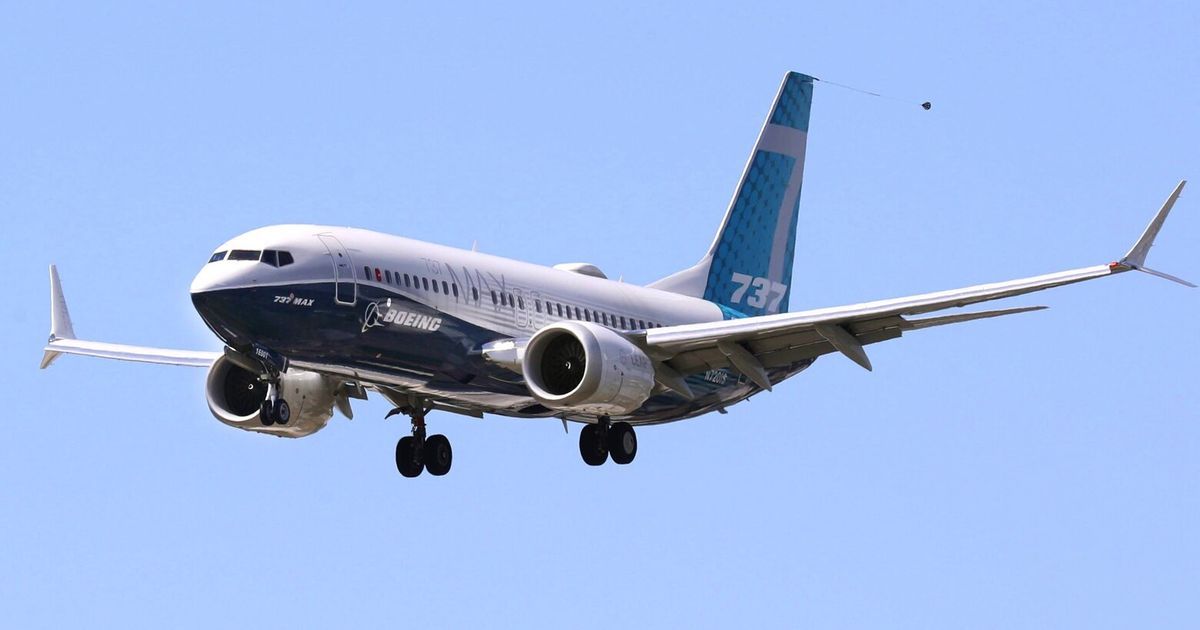Following the grounding of Boeing’s 737 MAX 9s due to an in-flight incident on Alaska Airlines Flight 1282, there is increasing resistance to Boeing’s request for a safety exemption needed to certify the next smallest model, the 737 MAX 7. Pressure from politicians has mounted on the Federal Aviation Administration, with Senators Tammy Duckworth, D-Illinois, and Maria Cantwell, D-Wash., recently voicing their opposition to granting the exemption. Boeing is seeking an exemption for the MAX 7’s engine anti-ice system from certain safety standards, which has been flagged by the FAA as having a potentially catastrophic flaw. Boeing argues that it is “extremely improbable” and that a warning to pilots is sufficient to ensure safety. The MAX 7’s entry into service is now uncertain, with doubts also surrounding the follow-on MAX 10. It had been expected to be certified by the FAA this month and to enter service with Southwest Airlines in the spring.
Duckworth, a pilot and chair of the Aviation Safety Subcommittee of the Senate Committee, called on the FAA to reject Boeing’s request, stating, “FAA should deny Boeing’s petition for an exemption and press the company to accelerate implementation of a mechanical fix to its faulty anti-ice system.” Cantwell supported Duckworth’s position, saying, “The FAA has found that this design feature is unsafe. Now is not the time to be talking about exemptions.” Without the exemption, the MAX 7 cannot be certified to fly passengers, leading Southwest, the largest MAX 7 customer with 302 orders, to remove the MAX 7 from its 2024 plans. Southwest’s Chief Financial Officer, Tammy Romo, mentioned the continued uncertainty around Boeing deliveries and certification as the reason for this decision. Boeing had reported the engine anti-ice system defect to the FAA, leading to restrictions on the use of the system for the MAX 8 and MAX 9 models flying in the U.S. The FAA also issued a directive instructing pilots on how to avoid dangerous overheating caused by the system. Boeing argues that the current flying MAXs operate under the same assumption, advocating for the MAX 7 to follow the same protocol.
Boeing pointed to the 737 MAX’s track record of over 6.5 million flight hours without reported cases of parts departing aircraft due to overheating, justifying its stance on the safety of the jet. However, critics contest the idea of granting an exemption for a potentially catastrophic flaw, especially after the recent Alaska Airlines incident and the two previous MAX 8 crashes. Boeing’s plight has been worsened by Southwest’s decision to remove the MAX 7 from its plans for 2024. Additionally, United Airlines CEO Scott Kirby stated plans to take the MAX 10 out of its fleet planning due to the ongoing uncertainties. This uncertainty has prompted the FAA to instruct Boeing not to increase MAX production until it resolves its quality management issues.EdgeInsets: 0 manually
ListView
android: layout_width = ” match_parent ”
android: layout_height = ” match_parent ”
android: id = “@+id/listView5 ”
tools: layout_editor_absoluteX = ” 8dp ”
tools: layout_editor_absoluteY = ” 8dp ”
tools: text = “It had been expected to be certified by the FAA this month and to enter service with Southwest Airlines in the spring.” />













